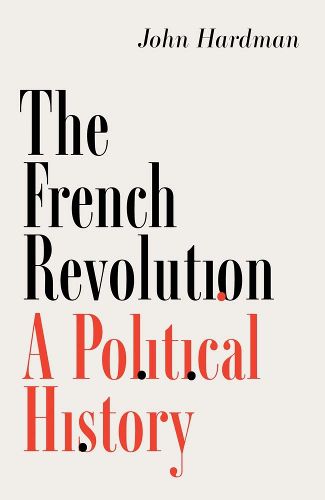Readings Newsletter
Become a Readings Member to make your shopping experience even easier.
Sign in or sign up for free!
You’re not far away from qualifying for FREE standard shipping within Australia
You’ve qualified for FREE standard shipping within Australia
The cart is loading…






A major new political history of the French Revolution
In 1786, France's ancien regime was functioning as usual. Its alliance with the victorious American colonies had restored its diplomatic prestige, the economy seemed to be flourishing, and internal politics seemed quiet. But just a few short years later, the dynasty which had ruled France for over 800 years was swept away. What happened to cause such devastating change to the long-established political structure?
John Hardman traces the political history of the French Revolution, from its origins to its aftermath. Hardman argues that the nature of ancien regime politics, the mismanagement of the fiscal crisis, and a new generation of young, overly confident politicians brought the Bourbon monarchy's apparatus crashing down. He shows how feudalism was on its last legs in 1789, and analyses the key roles played by Louis XVI, Antoine Barnave, and Georges Danton.
This is a remarkable history of one of modern Europe's defining moments, shedding new light on the complex politics of the day.
$9.00 standard shipping within Australia
FREE standard shipping within Australia for orders over $100.00
Express & International shipping calculated at checkout
A major new political history of the French Revolution
In 1786, France's ancien regime was functioning as usual. Its alliance with the victorious American colonies had restored its diplomatic prestige, the economy seemed to be flourishing, and internal politics seemed quiet. But just a few short years later, the dynasty which had ruled France for over 800 years was swept away. What happened to cause such devastating change to the long-established political structure?
John Hardman traces the political history of the French Revolution, from its origins to its aftermath. Hardman argues that the nature of ancien regime politics, the mismanagement of the fiscal crisis, and a new generation of young, overly confident politicians brought the Bourbon monarchy's apparatus crashing down. He shows how feudalism was on its last legs in 1789, and analyses the key roles played by Louis XVI, Antoine Barnave, and Georges Danton.
This is a remarkable history of one of modern Europe's defining moments, shedding new light on the complex politics of the day.